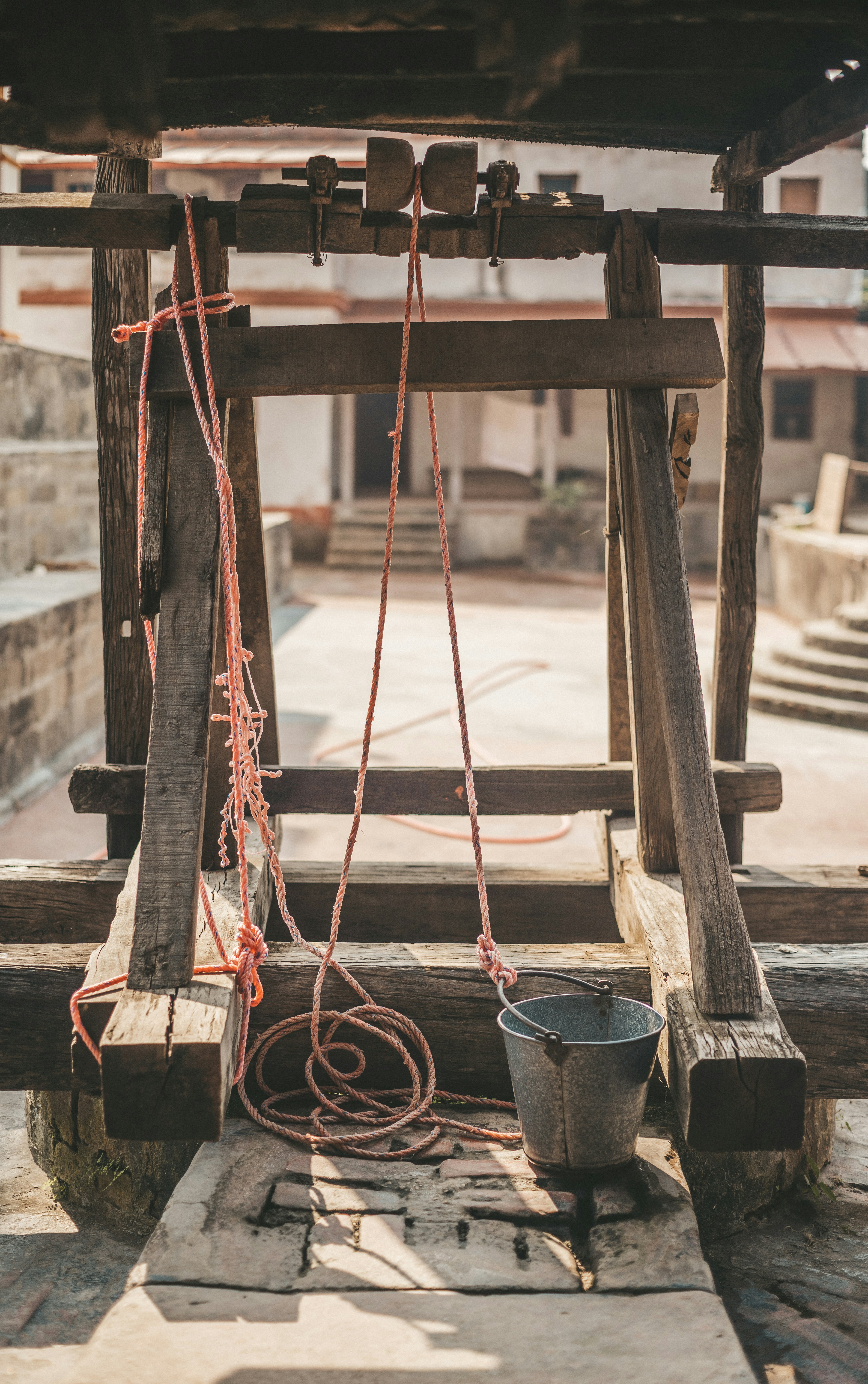3 Recommendations for Chinese Dramas with E-sports Themes on Netflix, Perfect for Gamers
For those of you who are gamers and also love Chinese dramas about e-sports available on Netflix, this is a must-add to your watch list.

Kapanlagi.com - Water is a basic necessity for human life. To meet the need for water, many traditional communities dig wells. In traditional Javanese culture, there are several things that need to be considered in the process of digging a well. One important aspect to pay attention to is the good day to dig a well according to Javanese primbon.
In Javanese primbon, it is indeed believed that each day of the week has its own energy. Therefore, there are certain days that are believed to be good and can bring benefits for specific activities. For example, when digging a well, there are special days that are believed to be the best and can bring goodness, smoothness, and luck in the form of abundant water sources.
So, what is the explanation of a good day to dig a well according to Javanese primbon? To find out, just take a look at the following discussion.

Understanding the Neptu Concept (credit: unsplash)
In Javanese tradition, determining a good day is usually done through a special counting method, as well as in determining a good day to dig a well according to Javanese primbon. To find the suitable day, the well owner must perform a special counting method involving the neptu value of the chosen day. Therefore, it is important to understand the concept of neptu before determining the day to dig a well.
Generally, neptu in Javanese tradition refers to the special value attributed to each birth day (Monday, Tuesday, Wednesday, Thursday, Friday, Saturday, and Sunday) and the values of the Javanese market days (Legi, Pahing, Pon, Wage, and Kliwon). Neptu is the sum of the birth day value and the Javanese market day that coincides at one time.
Birth Day Values
- The value of Sunday is 5
- The value of Monday is 4
- The value of Tuesday is 3
- The value of Wednesday is 7
- The value of Thursday is 8
- The value of Friday is 6
- The value of Saturday is 9
Javanese Market Day Values
- The value of the Javanese market day Legi is 5
- The value of the Javanese market day Pahing is 9
- The value of the Javanese market day Pon is 7
- The value of the Javanese market day Wage is 4
- The value of the Javanese market day Kliwon is 8
For example:
On Tuesday Wage, the neptu value is 7 (result of 3 + 4).

Good Days Group for Digging Wells (credit: unsplash)
In determining a good day for digging a well, the days of the week are categorized into 5 types: "tlogo", "sendang", "kali", "bengawan", and "sendang". Each of these five categories of days has its own meaning. Below is an explanation of the five categories of days for digging a well.
1.Tlogo
The day that falls under "tlogo" is believed to have a high possibility that if a well is dug on that day, the water that comes out will be quite good. The water that emerges can be clear and taste fresh, making it suitable for daily consumption.
2.Sendang
Secondly, if a day falls under the "sendang" category, then the water that appears in the well is likely to be clear. The water source is also quite abundant with a refreshing taste, making it suitable for daily consumption.
3. Kali
Third, a day that falls under the count of "kali", is believed to result in a well that will likely produce a very small water source. If a drought comes, the well may experience dryness. Therefore, today is not considered a good day to dig a well according to Javanese primbon.
4.Bengawan
Meanwhile, a day that falls under the count of "bengawan" is believed to be able to produce a well with an abundant water source. However, like a bengawan or river, the water produced may be murky or not clear, making it less suitable for daily consumption.
5.Segoro
Fifth, for a day that falls under the count of "segoro", it is believed that a well dug on this day will likely produce a very abundant water source. However, like the sea or ocean, the water produced may taste salty, making it less suitable for daily consumption.

How to Determine a Good Day (credit: unsplash)
As previously known, the neptu number plays an important role in determining a good day for digging wells according to Javanese primbon. The method to determine whether a day is good or not for digging a well is actually quite simple.
To determine whether a day is good or bad for digging a well, the steps are simply to perform a repeated count of "tlogo", "sendang", "kali", "bengawan", and "segoro" according to the neptu number of the day being calculated.
For example, on Tuesday Wage which has a total neptu of 7, the repeated count is done seven times, namely:
"tlogo" (1), "sendang" (2), "kali" (3), "bengawan" (4), "segoro" (5), "tlogo" (6), and "sendang" (7).
Based on this count, Tuesday Wage falls on the count of "sendang", making it considered suitable or good for digging a well according to Javanese primbon.
That is among several explanations on how to determine a good day for digging wells. I hope this is useful and can satisfy your curiosity all this time. As for the rest, whether to believe it or not is left to the readers.
(kpl/psp)
Cobain For You Page (FYP) Yang kamu suka ada di sini,
lihat isinya
For those of you who are gamers and also love Chinese dramas about e-sports available on Netflix, this is a must-add to your watch list.
Kim Bum is an INTJ, KLovers, and he certainly has an interesting personality for you to explore. Let’s delve into how the characteristics of an INTJ are reflected in Kim Bum's personality, a talented Korean actor with a Casanova aura that keeps fans on their toes. Let’s check it out!
In society, dreams about teeth, especially loose or fallen teeth, are often associated with various myths and traditional beliefs. Therefore, many people are curious about the meaning of dreaming about loose teeth.
Let's take a look at the synopsis of the film HELL OR HIGH WATER released in 2016, complete with a cast list and character explanations. Come on, let's check it out, KLovers!
Anime with dark storylines offers an unforgettable experience. Get ready to be taken into a world full of intrigue, moral dilemmas, and realities that are not always beautiful through the following recommendations for anime with dark storylines.
Let’s explore how the typical characteristics of blood type A belonging to Gong Yoo might be reflected in this talented Korean actor. Come on, let’s check it out, KLovers!
Let’s uncover the hidden side of the queen of dramas, revealing the true character that shapes Park Shin Hye's uniqueness seen from her MBTI type, which is INFJ. Curious? Just check it out, KLovers.
The word ai in Japanese has become a universal symbol of deep love. Let's take a look at the explanation of ai in Japanese, complete with other expressions of love that you can know and understand. Check it out, Lovers.
Korean drama MISS NIGHT AND DAY presents the story of a woman who experiences an extraordinary age transformation. For those who are curious, here is the synopsis of Korean drama MISS NIGHT AND DAY in 2024, promising laughter, sadness, and reflection. Let's check it out, KLovers!
Thai dramas often present unique and entertaining stories. There are also sad stories that are emotionally draining. Thai dramas with iconic scenes also add their own appeal to the audience.
Anime about cooking competitions has indeed become one of the increasingly popular genres in the anime world. So, what are the anime about cooking competitions? Let's explore some of the best anime that revolve around this cooking competition theme.
For those of you who want to watch this movie, here is the complete synopsis of the movie TRANSPORTER 3 in 2008, along with an explanation of its characters. Let's check it out KLovers!